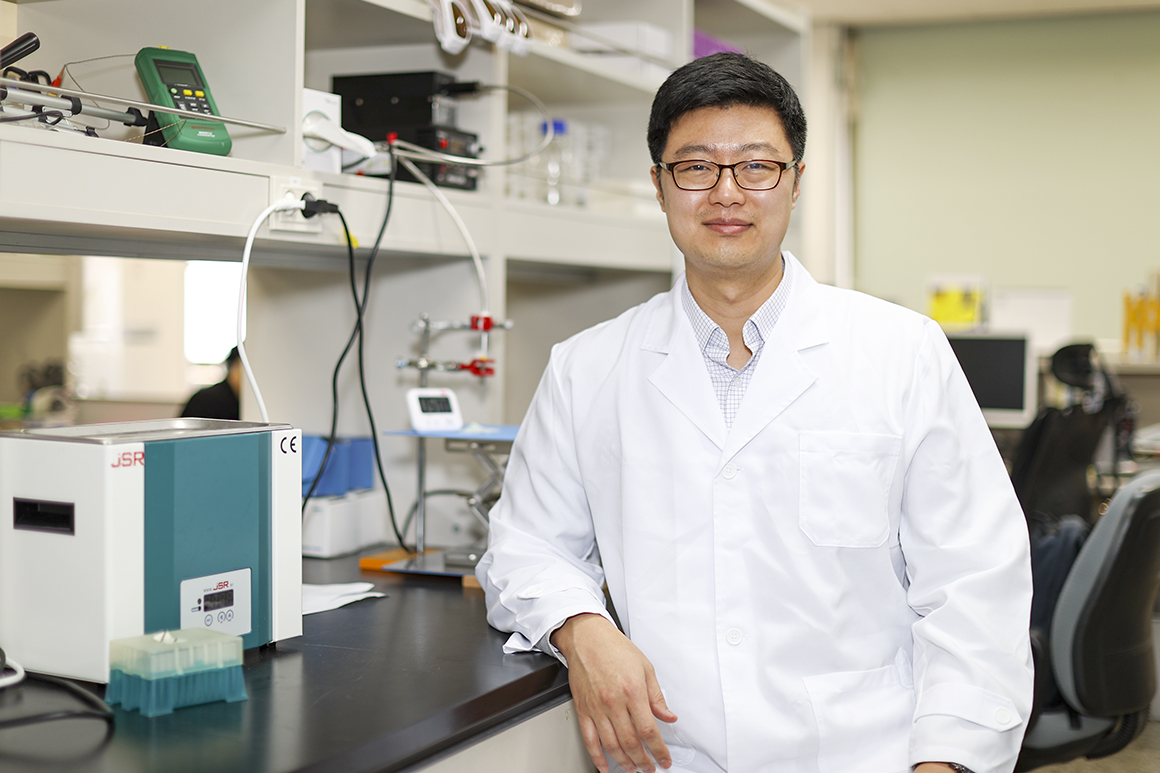YU Research Team Discovers New Immunity Fortifier to Improve ‘Anti-Cancer Effects’! N
No.89234- Writer pr
- Date : 2020.03.25 13:46
- Views : 8245
Department of Medical Biotechnology Professor Jin Joon-oh’s team confirms ‘FimH’ protein ‘in-body immunity activation’ functions
‘FimH’ improves functions of immunity and cancer treatment drugs and suppresses growth of cancer
Research achievements published in latest issue of the internationally acclaimed academic journal <Nature Communications>
[March 13, 2020]

YU Department of Medical Biotechnology Professor Jin Joon-oh’s (40) team discovered a new immunity fortifier ‘FimH’ that can improve anti-cancer effects.
Professor Jin’s research team verified through research that ‘FimH’, an adherence protein of colon bacillus, helps activate the human immune system and that it can suppress growth of cancer. The results of this study were published in the most recent issue of the internationally acclaimed academic journal <Nature Communications, impact factor (IF) = 11.8> (March 4, 2020).
The research team saw colon bacillus attaching to the large intestinal epithelial cell and came up with the idea to separate ‘FimH’ from colon bacillus flagellum and confirmed that this protein had immunity activation functions in immunocytes inside rats and human blood. It was found that FimH activated the immune system in the body through the toll-like receptor 4 (receptor that plays an important role in inherent immunity for microorganisms by detecting microorganism patterns and defending against it) of dendritic cells, while also confirming that when administered by combining with cancer antigens, the growth of melanoma and epithelial cell carcinoma. Furthermore, it was confirmed that it can increase the anti-cancer effects of the recently developed immune checkpoint inhibitors, thereby improving cancer treatment efficiency.
Dendritic cells are immuno-cells that exist in the human body and it has been reported that they collect pathogens that invade from the outside and tag protein antigens to induce activation of T lymph nodes, which are a type of white blood cells. Activated T lymph nodes find pathogens containing antigens and selectively destroy them to protect the human body and treat disease.
Professor Jin said, “Cancer treatment through immune checkpoint inhibitors have recently received a lot of attention. However, treatment efficiency drops for patients with low immune checkpoint protein manifestation.” He added, “It was found that by mixing FimH, a new immune fortifier that we discovered with the immune checkpoint inhibitor Anti-PD-LI antigen, the anti-cancer effects rose greatly. It is expected to be possible to use as a drug for improving efficiency of immune checkpoint inhibitors.”
Dr. Jin’s research team found that in the case of this newly discovered immunity fortifier FimH, immuno-cell activation abilities were excellent, while in-body toxicity was very low. Furthermore, it is a water-soluble material that melts well in water compared to other existing low-toxicity checkpoint receptor stimulation materials, it has the advantage that it can be mixed with various other vaccines for administration. FimH can be used for cancer vaccine development and infectious disease vaccine fortifiers, and it is expected that it will lower prices for vaccines, while increasing efficiency.
Meanwhile, Professor Jin has published his research achievements that were international recognized in the immunotherapy and vaccine development fields. In December of 2018, he published a study on development of a new vaccine using influenza antigens in a one of the world’s leading journals, <Biomaterials, impact factor (IF) = 10.27> and published his research on the development of immunotherapy drugs for treating metastatic cancer in <Journal for Immunotherapy of Cancer (IF)=8.728>.